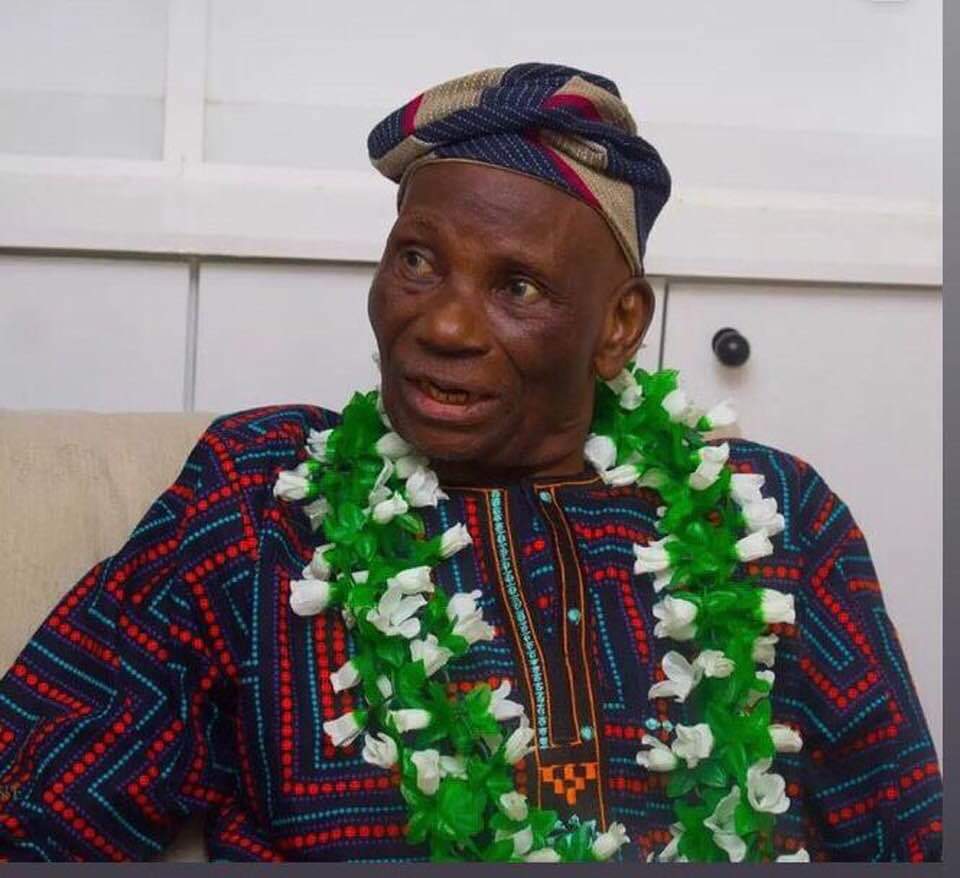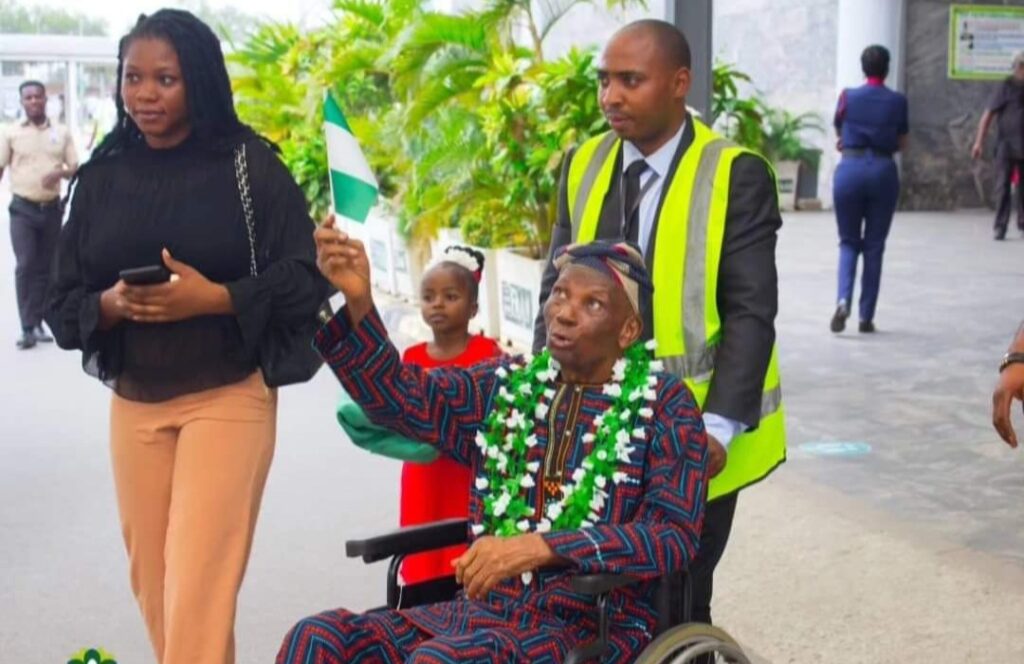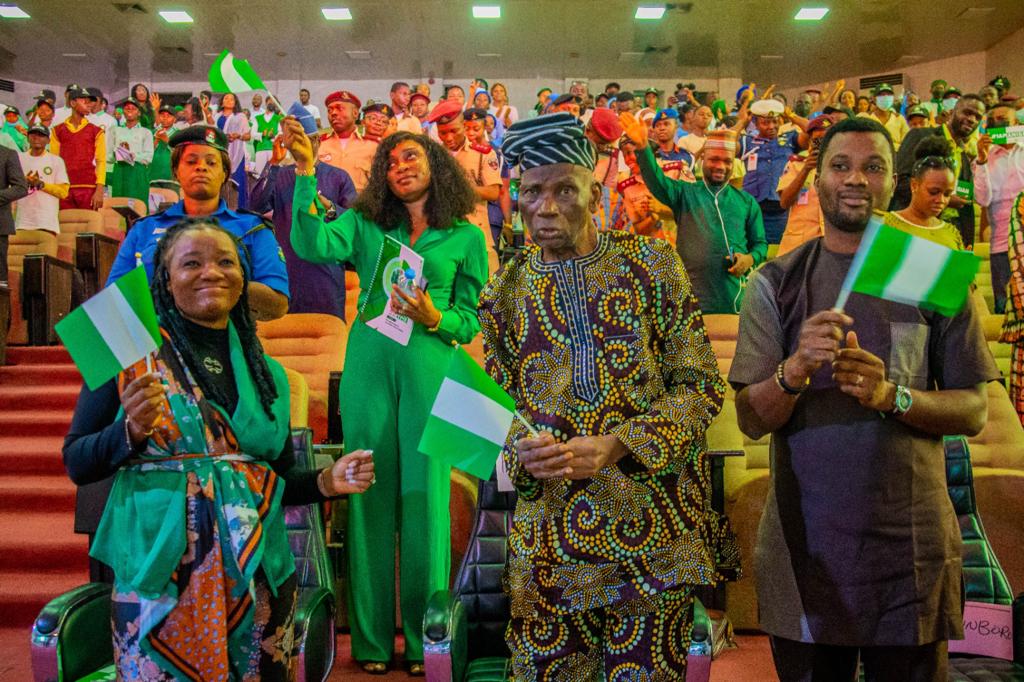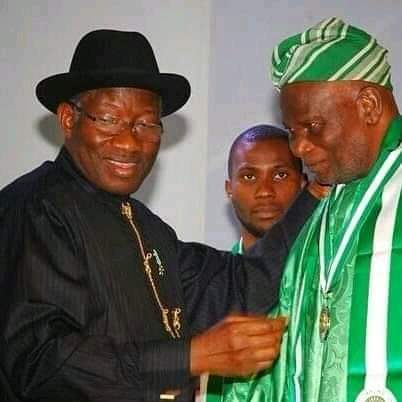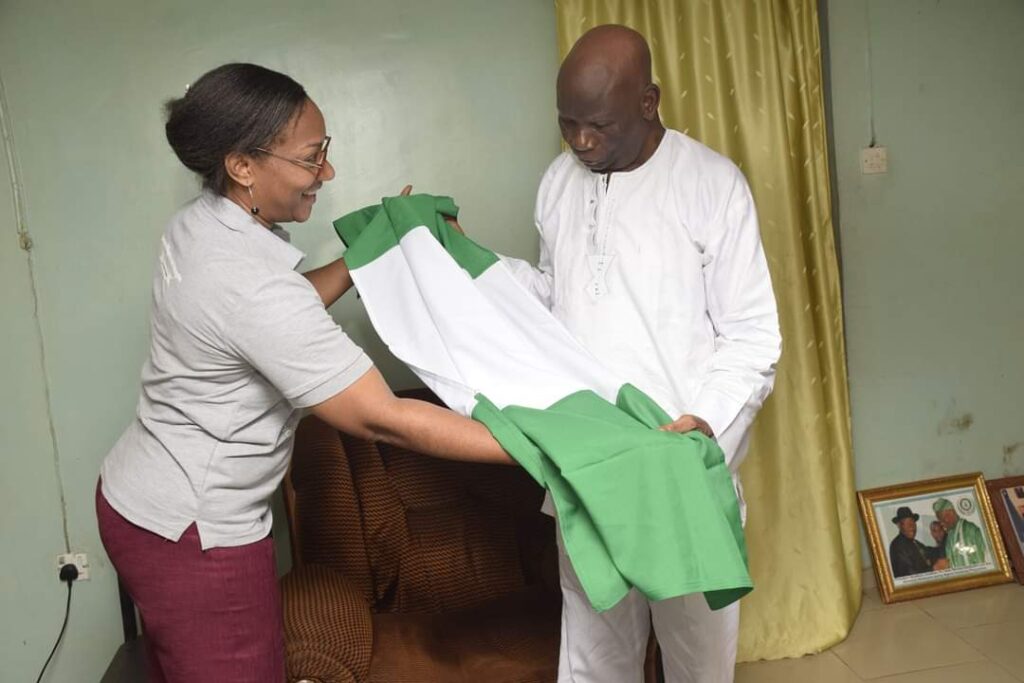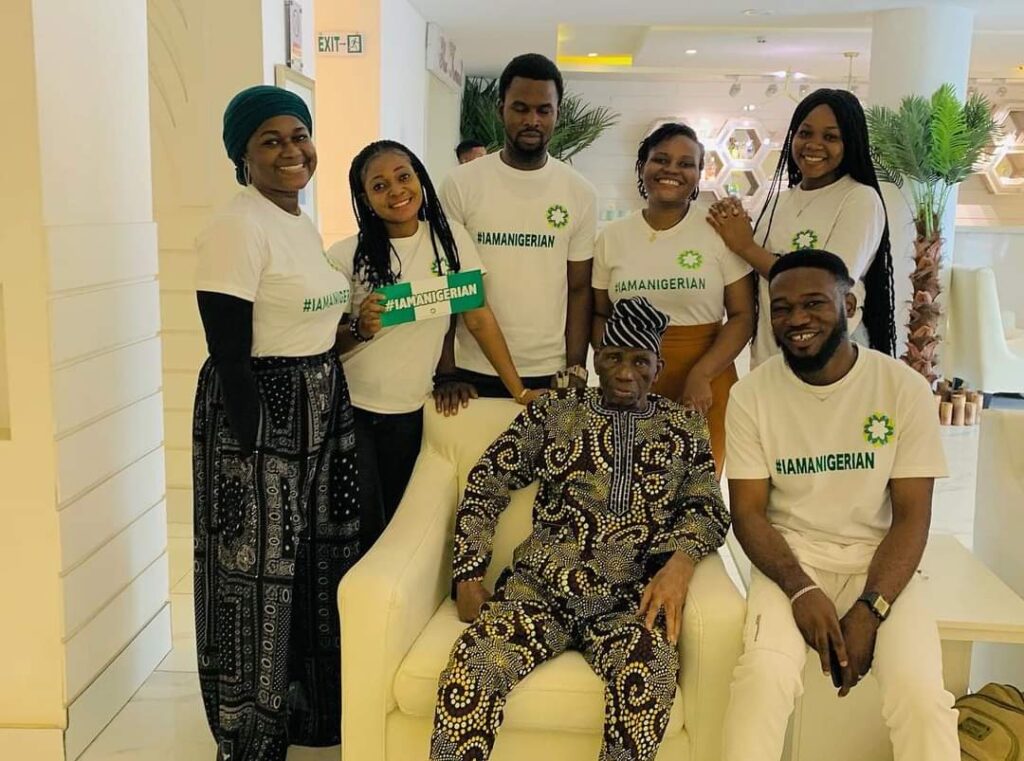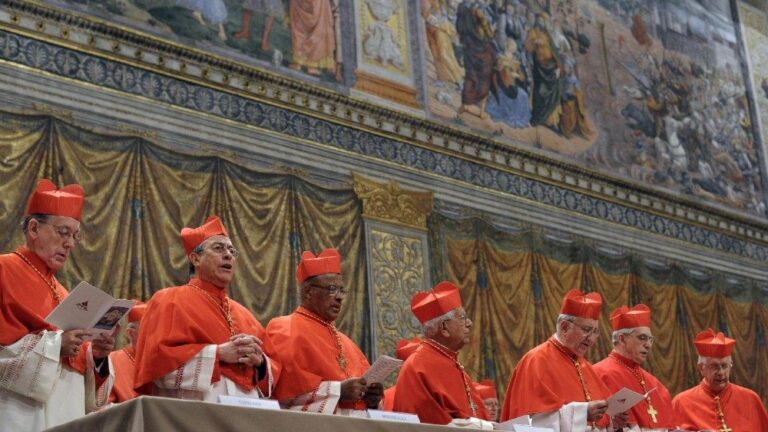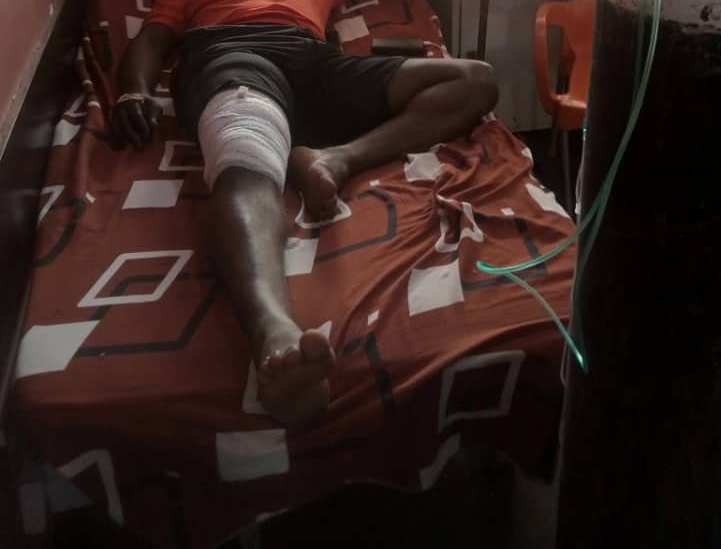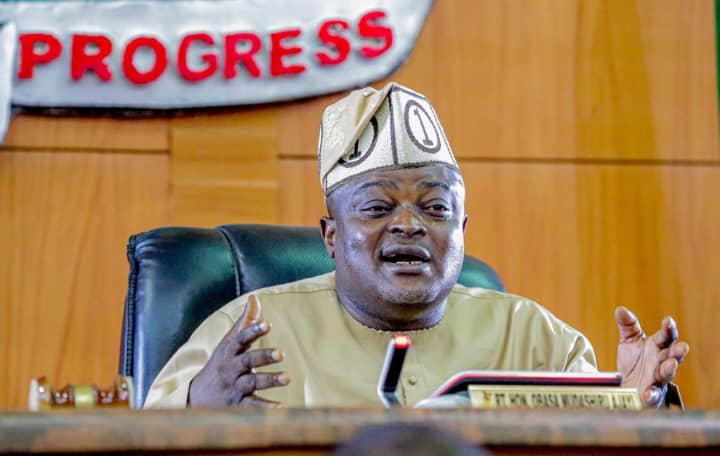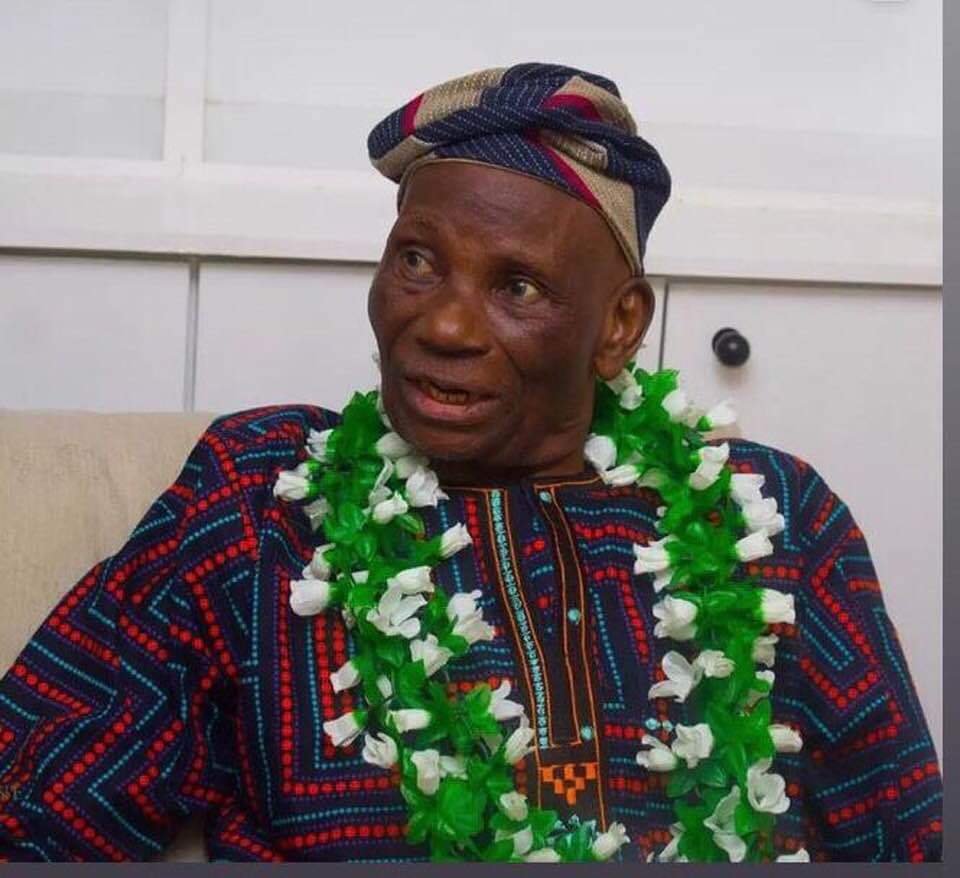
The Nigerian flag has been treated largely with love and respect since it was raised in 1960. Sadly, till his death at the age of 87 in August 2023, its designer, Michael Taiwo Akinkunmi, had little recognition, and his body remains cold in a morgue 10 months later.
It was in 1958, during the transition into an independent state, that the Nigerian government advertised a competition in a handful of newspapers, calling for the submission of flag designs.
Akinkunmi, then a 22-year-old student at Norwood Technical College, London, United Kingdom, registered his interest in the competition and submitted an entry: a rectangular flag divided into equal strips of green, white and green. On the white strip in the middle was the sun. The green color represented agriculture, and the white colour depicted peace. The red sun Akinkunmi drew in the middle of the flag represented energy.
Out of about 3,000 entries, Akinkunmi’s design was selected as the overall best. The red sun he had drawn in the middle of the flag was, however, removed, leaving Nigeria with a green, white and green flag.
The reason the red sun was taken out of Akinkunmi’s submission was never explained to him. He also never got much for creating the flag, even though some other Nigerians who made contributions to the country’s independence were recognised in public and essentially immortalised.
When Nigeria’s flag, which is made up of the colours green, white and green arranged horizontally, is flown in any part of the world, it is easily recognised, and Nigerians everywhere have learned to embrace its distinctive, uncomplicated and uncommon colours as part of their national pride and identity.
AKINKUNMI’S SON SPEAKS TO FIJ
On Tuesday afternoon, Samuel Akinkunmi, the Nigerian flag designer’s son, told FIJ that his dad, despite the way he was “neglected” by successive Nigerian governments, was “patriotic till the very end”.
“Our dad was a perfect gentleman who made sure he avoided controversies and scandals at all times,” said Samuel.
“He enjoyed keeping a low profile and would also always render help without the intention of taking glory for it.
“He did many things for the people around him without grandstanding and making the entire world hear of it.
“You know the funniest part? While he was still alive, he would always prevent people from criticising the government on his behalf.
“He would staunchly defend the government, saying the people in power were trying their best and that it would be impossible for them to help everybody.
“There were times he was forced to tell people the government came to his aid, whereas most of the things he had while he was alive were bought with the little money he had on him.”
AKINKUNMI’S BURIAL SHIFTED THREE TIMES DUE TO GOVERNMENT’S PROMISES
Samuel told FIJ that the Akinkunmi family was already planning to bury him when the government stepped in, pledging to honour him with “a proper state burial”.
“After my dad died on August 29, 2023, the entire family held a meeting and later reached an agreement that he would be buried between December 10 and 11, 2023,” Samuel told FIJ.
“However, that particular period coincided with the time representatives from the Oyo State Government came to pay a condolence visit to us.
“At the federal level, officials from the National Orientation Agency (NOA) also visited us.
“It was during their visit that they declared that because my father was a national hero, they were going to ensure that he was given a befitting state burial.
“Unfortunately, that was the last time we heard from the officials of both arms of government. Because of the pledge that they made, however, we were then left in a dilemma on what we were supposed to do next.
“We could no longer go ahead to bury my dad in our own little way as a family because the government had stepped in, and we also no longer heard from the government as per the promise they made.
“We wrote several mails to both the Oyo State Government and the federal government to call their attention to the promise they made, but we did not get any response from them.”
EARLY LIFE
Akinkunmi was born a twin to a civil servant father and a trader mother on May 10, 1936, in Ibadan, Oyo State. Unfortunately, Kehinde, his twin brother, died at birth. He received his first formal primary education in northern Nigeria after moving to the region in the company of his mother as an eight-year-old.
A few years later, he moved back to Ibadan to continue his education when his father retired from active civil service. In 1949, he completed his primary school education at Baptist Day School, Idikan, Ibadan.
Between 1950 and 1955, Akinkunmi had his secondary school education at Ibadan Grammar School.
After working in the civil service for a while, he proceeded to Norwood Technical College (now Lambeth College) in the capital city of the United Kingdom to study electrical engineering.
He returned to Nigeria in 1963 and went back to the agricultural department in Ibadan, where he had worked before travelling to England. He worked as a civil servant until his retirement in 1993.
THE FIRST TIME SOMEONE FROM GOVERNMENT REALISED AKINKUNMI WAS STILL ALIVE
Samuel digressed to talk about the first time Nigerians got to know his father was still alive after many thought he had died.
“The first time many Nigerians got to know my dad was still alive was in 2010, when the late Prof. Dora Akunyili, who was then the Minister of Information and Communications, reached out to my dad,” said Samuel.
“This was when she was trying to work on the rebranding campaign for the entire country. That was when they came up with the ‘Good People, Great Nation’ slogan.
“Because it was an impromptu invitation, however, I was the person who represented my dad at the event.
“That, I would say, was the first time someone from government would officially reach out to my dad to recognise him as a national hero.
“After that period, everything went silent again, and no one heard from the government again.”
Samuel told FIJ his father bagged the Order of the Federal Republic honour in 2014 after “many thought he had died”.
“In 2014, Mrs. Monsurat Sunmonu, who was then the Speaker of the Oyo State Assembly, had to fight for my dad to be recognised before he eventually bagged OFR honours during the Goodluck Jonathan administration,” Samuel said.
“Prior to that period, all the people in government thought my dad was no longer alive. No one also bothered to check whether he was still very much alive or not. When it was eventually brought to Mrs. Sunmonu’s notice that he was till alive, an open letter was subsequently written to former president Goodluck Jonathan, who later honoured him with an OFR merit award.
“That was the only other time I would say my father was remembered.
“During the ceremony, Jonathan also made him a lifetime special adviser and placed him on a monthly stipend.
“The payment was stopped two months after he died in 2023.
“In summary, my dad was born on May 10, 1936; he designed the Nigerian flag at the age of 22. He was eventually remembered for his pre-independence contribution in 2014, and he died at the age of 87.
“He’s been dead for 10 months, and his body is still lying in a morgue because of the befitting state burial promise the government made.”
In 2008, Akinkunmi was invited to a special edition of Who Wants to Be a Millionaire?, a popular TV show, from where he went home with a N2 million cheque.
“The money was used to complete his house, which he resided in until his demise,” said Samuel.
“The house was even painted in the colour of the Nigerian flag.”
Prior to this, however, Olawale Sunday Olaniran, a researcher who wanted to work on a documentary that would shed light on Nigeria’s history, had found Akinkunmi in Ibadan.
At that time, Akinkunmi was not living in the best of conditions. His pensions did not come in regularly, and he had to live off some donations for a period. This was after he had retired from public service in 1993.
From Samuel’s statements, it was clear the family had planned on burying their patriarch long before now.
“As it is now, we can still not do anything because the government has said they must have a say in his burial because of his status as a national hero,” said Samuel.
“What we were told that even made us put our own arrangements on hold was that my dad’s burial could not just be carried out by us alone.
“They stressed that government officials, both at the state and federal level, must be present to give him a befitting ‘farewell and salute’ before he could be buried.
“In the last communication we had with the Oyo State Government, we were told to list all that the family would need for the burial, and we have forwarded it to them.
“We are, however, still waiting for a response from them.”
When Samuel was asked if the Oyo State Ministry of Information, Culture and Tourism was aware of the level of unresponsiveness on the part of the government, he said, “Well, they are supposed to be involved in the burial, but we have not heard anything from them.”
The late Akinkunmi, whose wife died in 2019, is survived by three children and grandchildren.
When FIJ called Dotun Oyelade, the Oyo State Commissioner for Information, Culture and Tourism, for comments on the matter, he said he would carry out an investigation and provide feedback by Thursday.
“I will investigate the complaint and get back to you on Thursday when I’m back to base,” he said.
FIJ also sent an email to the NOA for comments on Wednesday, but it had not been responded to at press time.
